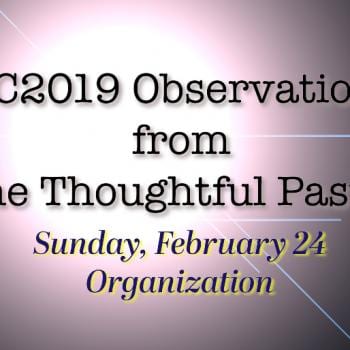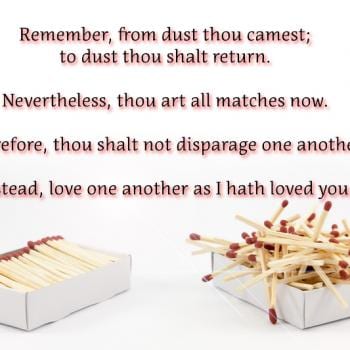The idea of “doing no harm” underlies many important service traditions. The Hippocratic Oath, often taken by students upon graduating from medical school, reads in part: “I will prescribe regimens for the good of my patients according to my ability and my judgment and never do harm to anyone.”
The General Rules of The United Methodist Church read:
- First, do no harm.
- Second, do all the good you can.
- Third, stay in love with God.
Recently, I came across the Oath for Compassionate Service written by Robert Lupton and explained in his book, Toxic Charity. Here is part of the oath:
- Never do for the poor what they have (or could have) the capacity to do for themselves.
- Strive to empower the poor through employment, lending, and investing
- Subordinate self-interests to the needs of those being served.
- Above all, do no harm.
Do no harm. This is our passion. And yet, much harm has been done in the names of medicine and of religion. And, as Lupton points out, much harm has also been done in the name of charity.
I felt kicked in the stomach when I read Lupton’s work. In this short and well-researched book, Lupton states it clearly: much of our charitable work ends up doing terrific damage. He notes that many of our efforts have ended up creating dependency, rather than greater self-sufficiency.
When we create dependency, we have done harm. Most of us who give heavily (or even lightly) to charities whose stated purpose is to relieve suffering of some sort do so with the best of motives: we genuinely want to help. What I did not understand until I read Toxic Charity was the extent of the unintended consequences of much of our charitable giving—and this includes relief efforts to impoverished and storm damaged areas.
For example, when Haiti was so badly damaged by the earthquake in January 2010, massive amounts of relief flowed into that tiny country. Those immediate relief efforts were highly productive and very necessary. But that was nearly three years ago. The economy is still in chaos, little rebuilding of the infrastructure has taken place. One possible reason: multitudes of local workers were put out of business by the numbers of US mission teams that came to help, again, with the best of intentions.
According to Lupton, many mission trips end up being “feel-good” times for the participants, but leave the local economies in worse shape and people even less empowered and equipped to deal with the real causes of ongoing poverty and terrible suffering.
Yet we who have much do have a responsibility to give much. But we must do so wisely and in ways that actually address the real problems underlying the suffering, much of which is indeed caused by soul-destroying poverty.
In the United States, there appear to be two primary causes of poverty.
One is situational and acute. Crushing health care expenses, sudden loss of employment, and environmental changes can quickly destroy what had been reasonable sufficiency. IA brief hand up and some support during the crisis can, on occasion, reverse this downward trajectory, particularly when the basic skills for productive living are intact.
Second is systemic and chronic. This is the generational poverty that has turned into deep dependence. It leaves people groups degraded and ill-equipped culturally and educationally to dig out and find more productive and dignified ways to live. Millions, even billions of dollars have been thrown at the problem. It is not getting better.
I’m in the midst of a Sunday message series on these topics and invite you to participate and think with us for far more effective ways to handle our charitable giving. The year-end appeals are about to fill our in-boxes and mailboxes. Let’s learn to be wiser in our caring and smarter in our giving about this.
Above all, let us do no harm.













